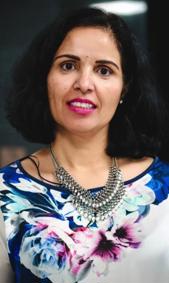In this seminar, we are joined by Professor Naureen Durrani, Research Chair in School Education in the Graduate School of Education, Nazarbayev University, Kazakhstan.
Education and gender are significant in nation-building projects in the newly independent, post-Soviet country, Kazakhstan. Since Independence, the country's dual quest for forging a national identity and modernity has led to the pursuit of large-scale educational reforms. However, little knowledge still exists on how gender features within these reforms.
A 'gender paradox' is also seen in the country, with universal access to schooling and a higher representation of women than men at the tertiary level, yet wide gaps at the expense of women exist in the economy, politics, and leadership positions, alongside high levels of domestic violence and its social acceptability.
Drawing on her recent research, Professor Naureen Durrani will explore the role of education in the production of gender in Kazakhstan by analysing secondary school textbooks and teachers’ discourses. The gender asymmetries observed have implications for equality, social justice and peaceful coexistence.
For more information, please contact Ms Amy Smail (amy.smail@stmarys.ac.uk), Postdoctoral Researcher, Centre for Research into the Education of Marginalised Children and Young Adults (CREMCYA).
About the speaker

Before joining Nazarbayev University, Professor Naureen Durrani worked at the Centre for International Education, University of Sussex. She has also held positions at Northumbria University, the University of Central Lancashire and the University of Peshawar.
Naureen's research interests lie in the social, cultural, political and economic influences on educational policy formulation and enactment and the outcomes of education on identity formation and social relations. She also draws on post-structural and postcolonial theories for contextually relevant and situated studies. Currently, Naureen directs the Central Asia hub of the PEER Network which aims to support research expertise in the political economy of education in Central Asia and Africa.
This presentation would be of interest to anyone working or studying in the fields of Education and International Development, Post-colonial Studies and Gender.
